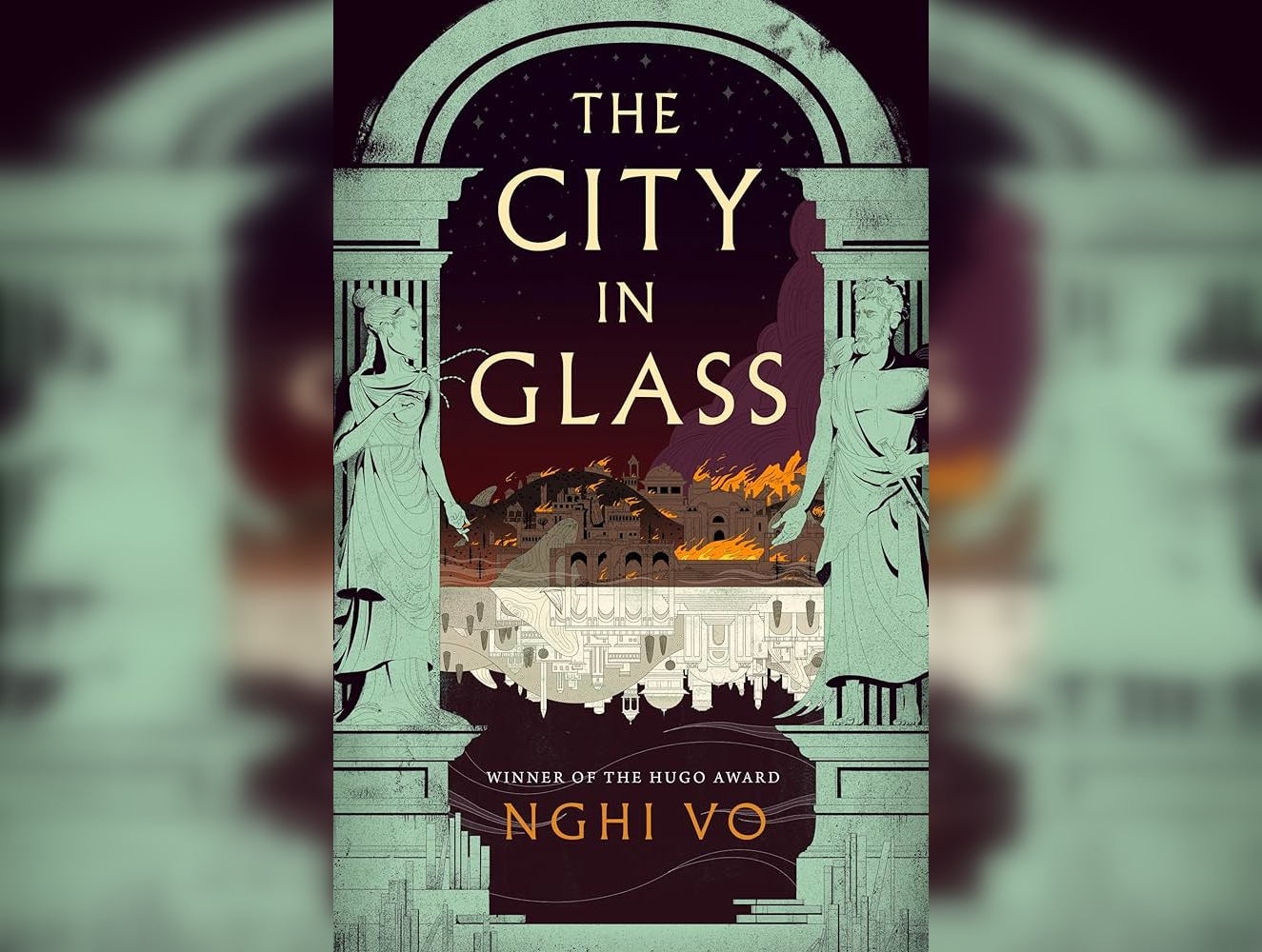
News
When Professors Speak Out, Some Students Stay Quiet. Can Harvard Keep Everyone Talking?

News
Allston Residents, Elected Officials Ask for More Benefits from Harvard’s 10-Year Plan

News
Nobel Laureate Claudia Goldin Warns of Federal Data Misuse at IOP Forum

News
Woman Rescued from Freezing Charles River, Transported to Hospital with Serious Injuries

News
Harvard Researchers Develop New Technology to Map Neural Connections
‘The City in Glass’ Review: Beautiful and Bland
3 Stars

Angels and demons are eternal symbols of opposition, but Nghi Vo’s newest novel, “The City in Glass,” explores what can happen when these antithetical figures work together. Vo, the Hugo Award-winning author behind “The Empress of Salt and Fortune,” uses her new project to generate a creative fantasy world focused on Vitrine, a demon who has adopted the city of Azril as her home.
One day, Vitrine’s carefully crafted mischief is destroyed when a group of angels decides to raze the sinful city. Vitrine manages to curse one of the angels, linking him to Azril, and over time, the two immortals begin to team up to make Azril rise again from the rubble. “The City in Glass” is lyrical and dives into hundreds of years of fantastical history, and its prose style will enchant many readers. Yet, its beauty can’t completely mask its vague plot and characters, which may leave others dissatisfied when they reach the tale’s final pages.
The novel’s prose is, to put it simply, breathtaking. Vitrine, the novel’s narrator, guides the reader through the endless memories of an immortal and the mystical powers of a demon. Vo uses a lyrical style to link one thought to the next in a flurry of fantastical images. Paired with Vitrine’s magical powers, the prose transports the reader into a world where words can have deep power, years can pass in moments, and generations quickly dance down the line of history. The prose highlights the novel’s central theme of time, since Vitrine’s words connect her past, present, and future easily. Creating beautiful set pieces and immortal images was obviously Vo’s goal with the story, and she completely succeeded in this endeavor.
However, the actual world that Vitrine and her thoughts inhabit is wobbly when considered on its own two feet. Fantasy worlds can be hard to keep track of in the first place, but since Azril is described through the chaotic and unclear perspective of a mystical demon, it is especially hard to imagine the city in one’s mind. Since Vitrine has inhabited her universe since the beginning of time, she does not find it necessary to explain the rules to the reader. This leaves her powers, backstory, and world feeling unformed and confusing. Ideas mentioned in passing — like fantastical items or peoples, or the relationship between this novel’s angels and demons — feel like inside jokes to which the reader is not privy. The coming of the angels that destroy Azril is most notably left unexplained, so the initially strained relationship between Vitrine and her cursed angel is quite confusing. Vitrine’s lovely narrative would feel more compelling if her world had a deeper personality and more palpable stakes.
This problem with indistinctness also extends to the characterization of Vitrine and her angel sidekick. While we get to know Vitrine and her connection to Azril due to her control of the story, the angel that grows alongside her remains unnamed. He mostly resides in the shadows of Vitrine’s home, and they seem to simply tolerate one another for most of the novel. Yet, by the story’s end, the two immortals have a romantic moment. This connection feels like it comes from nowhere, since we get no insight into the angel’s interest in the demon. Again, Vo’s prose occasionally feels wasted on a character that feels foreign to the reader even by the novel’s end.
Vo has generated another stunningly written novel that takes the reader on a journey through grief, time, and the slow rebuilding of love. Yet within this haze of beautiful language, the reader may easily become lost. For the most part, Vo’s gauzy layer of prose hides what isn’t fully constructed — but for readers trying to truly explore Vitrine’s world, they may uncover the overall bland characters and plot.
—Staff writer Hannah E. Gadway can be reached at hannah.gadway@thecrimson.com.
Want to keep up with breaking news? Subscribe to our email newsletter.
